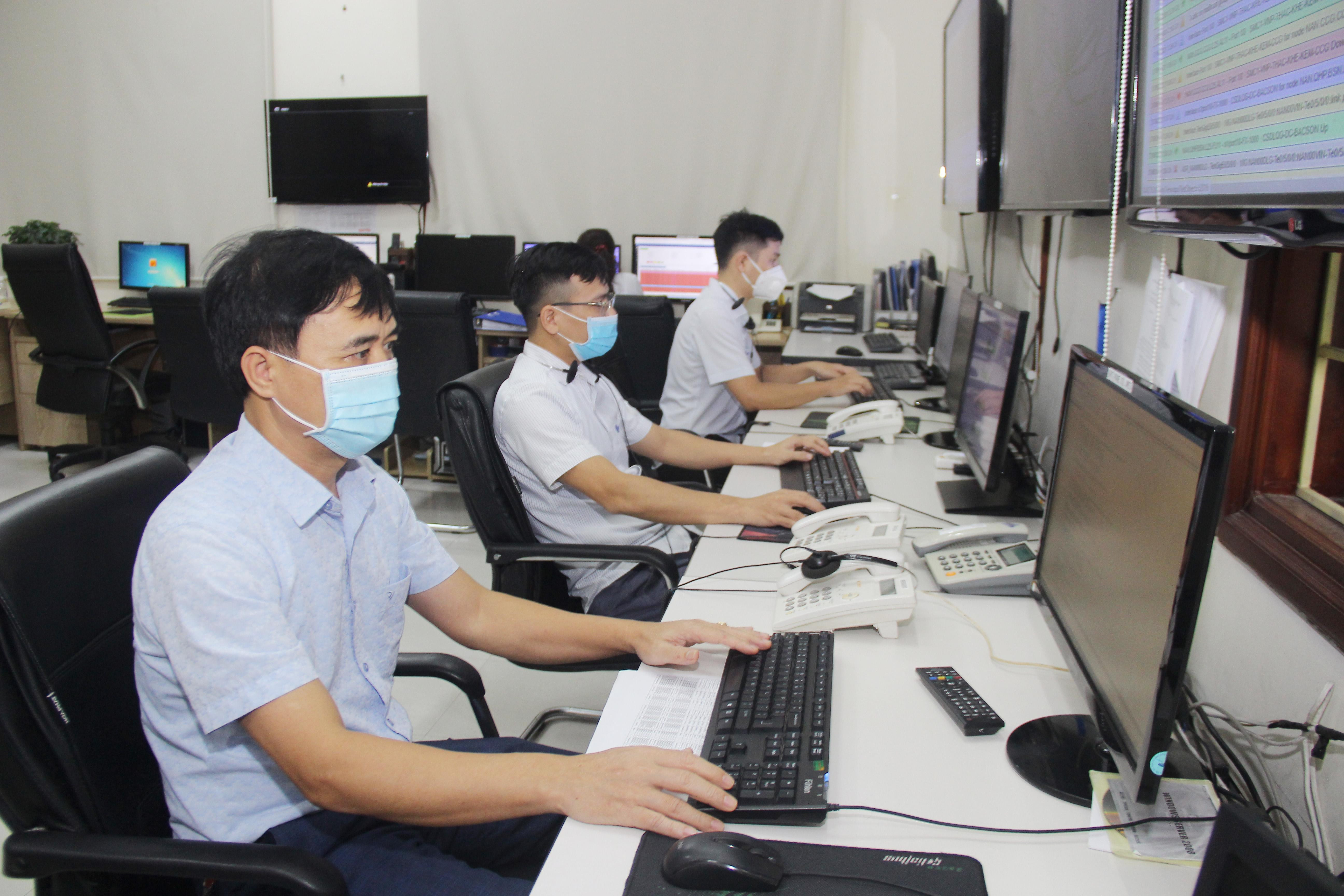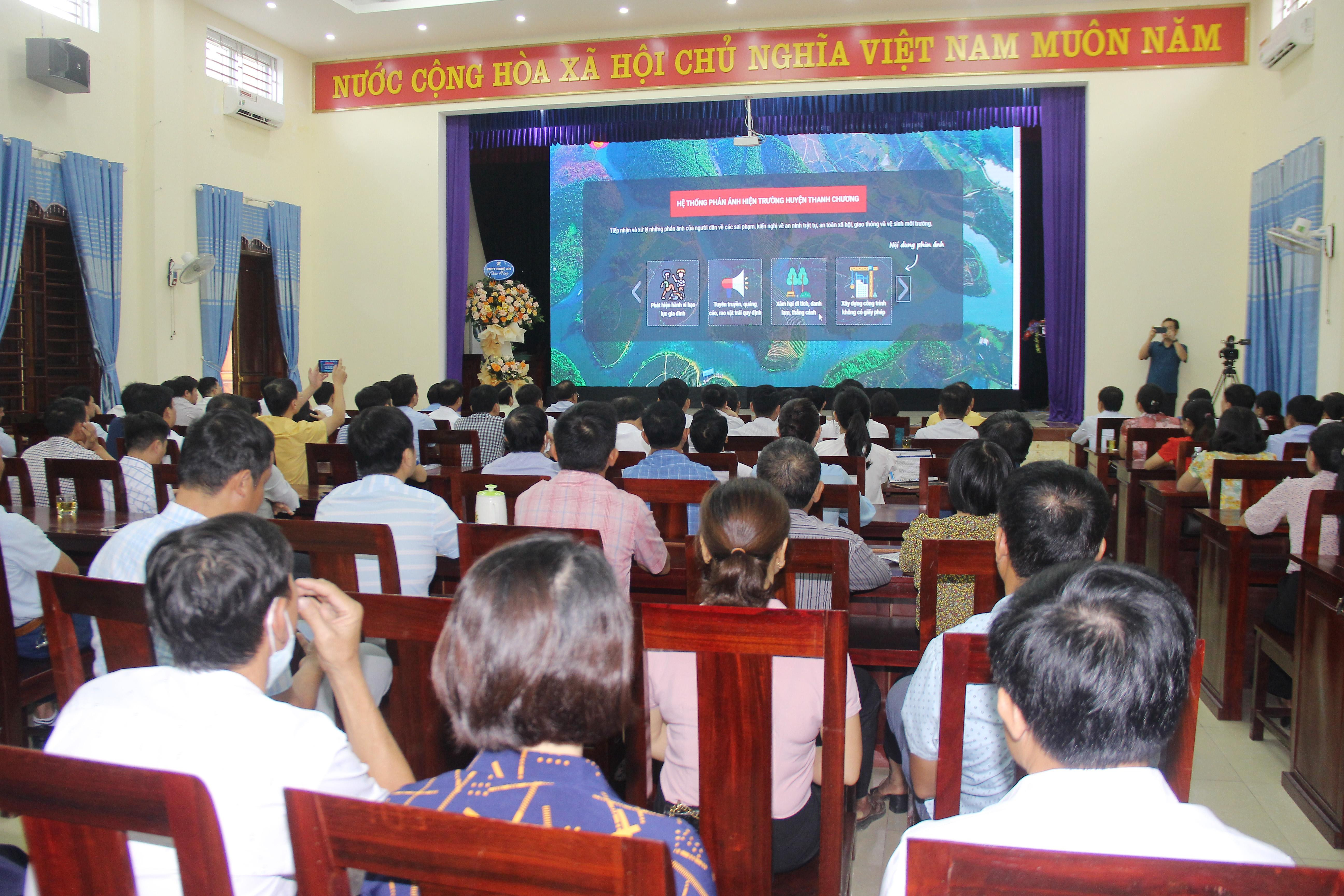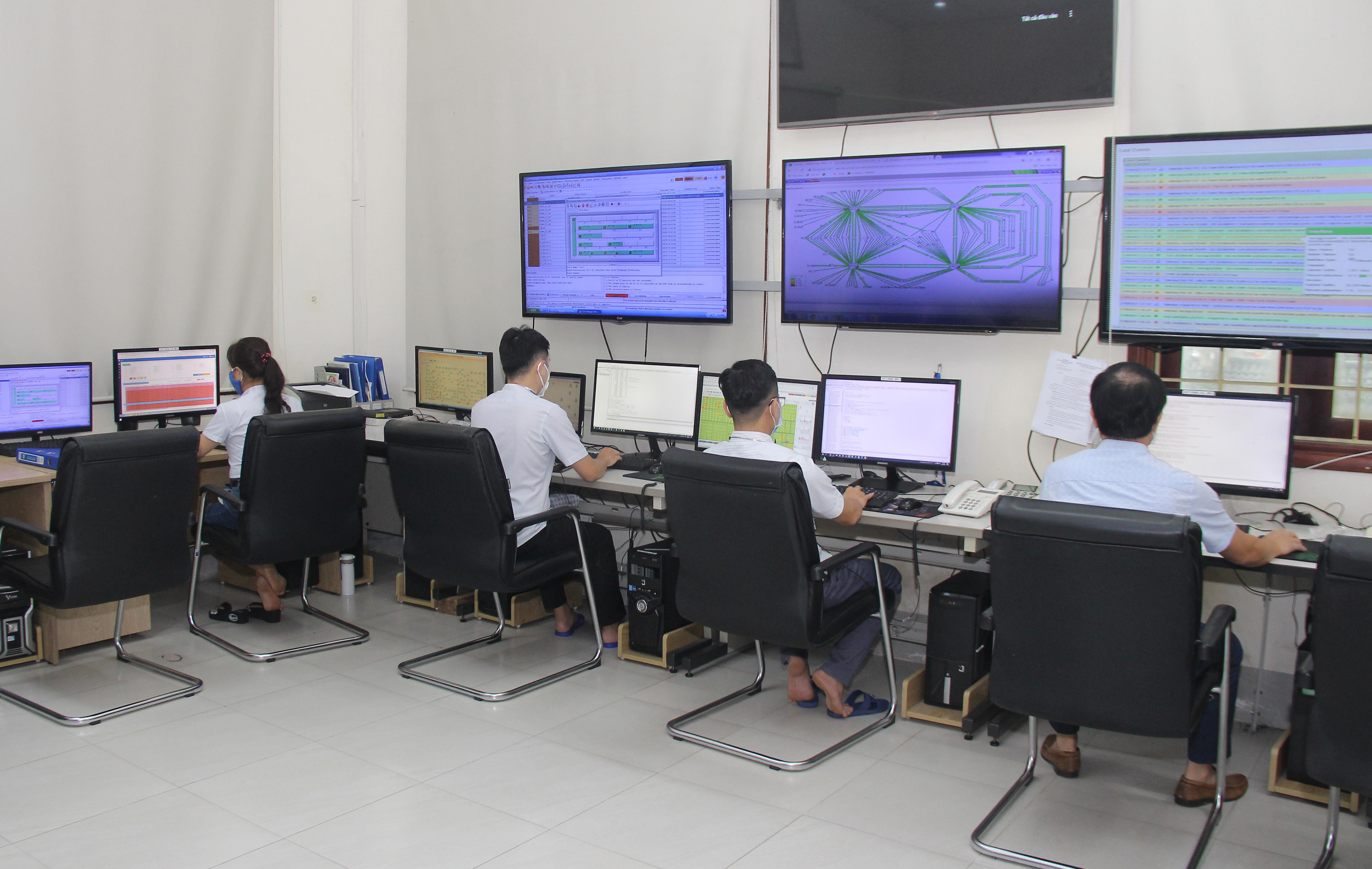Nghe An: Focusing on digital transformation on all 3 pillars
(Baonghean.vn) - The 13th National Party Congress identified digital transformation as one of the development orientations, key tasks and strategic breakthroughs. This content has been and is being focused on by Party committees at all levels in Nghe An with determination and drastic implementation on all three pillars: digital government, digital economy and digital society.
 |
Information technology network operating system at VNPT Nghe An. Photo: Mai Hoa |
Transformation across all three pillars
Digital transformation is receiving special attention from the Party and Government in the 4.0 industrial revolution. The Resolution of the 13th National Party Congress clearly identified digital transformation as one of the development orientations, key tasks and strategic breakthroughs with the requirement to focus on developing information and telecommunications infrastructure, creating a foundation for national digital transformation, and gradually developing the digital economy and digital society. On June 3, 2020, the Prime Minister signed and issued Decision No. 749/QD-TTg approving the "National Digital Transformation Program to 2025, with a vision to 2030".
In Nghe An, the Provincial Party Standing Committee, the Provincial Party Executive Committee and the Provincial People's Committee have also identified digital transformation as a breakthrough solution in administrative reform for the 2021-2030 period; digital transformation has also been chosen as the administrative reform theme in 2022 to create positive changes from the province to the grassroots in the application of information technology and digital transformation. Implementing the policies of the Central and the province, many agencies and units in the province have actively and proactively implemented.
In Thanh Chuong district, since the Party Congresses at all levels up to now, the "story" of digital transformation has been vigorously implemented by the Party Committee and the government, attaching responsibility to each agency, unit and leader. Digital transformation has been chosen by this locality to focus on 3 pillars: digital government, digital economy, digital society. To ensure the implementation of digital government, in addition to directing and operating through the I-Office system; departments, branches and sectors at the district and commune levels have deployed digital signatures. The district has deployed online public services at levels 3 and 4 at 55 agencies and units in the district. The district has also just opened the Information Center, directing, operating and a system reflecting online interactions between people and the government.
Comrade Trinh Van Nha - Deputy Secretary of the District Party Committee, Chairman of the People's Committee of Thanh Chuong district shared: With a large area, many administrative units (38 communes and towns), and a large population; the operation of this center will enhance communication and interaction between people and the government; people can reflect all pressing issues arising at the grassroots level, including the spirit, attitude, and responsibility of officials and civil servants at all levels to the government online; people can monitor and evaluate the level of resolution and satisfaction with the government. On the government side, it will also receive more quickly difficult and pressing issues at the grassroots level to focus on resolving them, and at the same time promptly adjust and rectify the direction and administration work, creating an environment to attract investment and promote socio-economic development.
 |
Thanh Chuong district inaugurated the Information Center, command and control center and online interaction reflection system between people and the government. Photo: Mai Hoa |
Currently, Thanh Chuong is also continuing to deploy administrative procedures to online public services to reduce inconvenience for people and businesses and eliminate possible negative impacts. Regarding the digital economy, it is necessary to continue promoting the application of information technology and digitalization in the fields of electricity, telecommunications, banking, etc. In particular, Thanh Chuong is an agricultural district, so digital transformation in this field is prioritized to promote high-tech agricultural production, liberating manual labor from planting, caring, harvesting; promoting communication activities, promoting agricultural products on electronic information pages, trading floors, etc. Thanh Chuong identifies that people play a central role in digital transformation, first of all, leaders and managers at all levels, to officials, civil servants, employees, workers, people and businesses to truly create a widespread digital society.
 |
Training and introducing interactive software between people and the government in Thanh Chuong district. Photo: Mai Hoa |
With the motto of "testing the waters by throwing stones", implementing and learning from experience, the Standing Committee of the Vietnam Fatherland Front Committee of Nghe An province focuses on implementing digital transformation on 8 key contents. Including deploying an online conference system with 86 meetings from the province to the grassroots (except for 40 difficult communes that have not yet installed); upgrading and completing the electronic information system of the Vietnam Fatherland Front of Nghe An province; deploying the construction of social networking sites such as Zalo, Facebook, and fanpage to propagate the activities of the Front. According to comrade Le Van Ngoc - Standing Vice Chairman of the Provincial Fatherland Front Committee, these are important two-way information channels: propagating policies at all levels as well as movements and campaigns launched by the Fatherland Front, at the same time allowing the Front to grasp more of the people's situation and orient public opinion.
The provincial Fatherland Front has also deployed the I-Office document management software system from the provincial to district levels, serving the work of directing, operating, organizing the implementation of the Front's tasks quickly, effectively, saving operating costs; especially monitoring, controlling work, enhancing the responsibility of the Fatherland Front officials at all levels. The provincial Fatherland Front has also deployed digital signatures at the provincial and district levels; built a management system reflecting the interaction between the people and the Front, the government in 4 units: Vinh city, Hoang Mai town, Nghi Loc district, Con Cuong district. Currently, the provincial Fatherland Front is continuing to build a database system of the Front's work in the fields of movements, organizations, propaganda, people's diplomacy, democracy - law, ethnicity, religion, serving the Front's activities in particular and the general socio-economic development tasks of the province.
Difficulties to be resolved
 |
Information technology network operating system at VNPT Nghe An. Photo: Mai Hoa |
In practice in Nghe An, information technology infrastructure has been invested and deployed widely, meeting the minimum needs for computerization of state agencies' operations. The province has also completed the construction of a provincial-level shared integration platform (LGSP); successfully tested LGSP-NGSP connection APIs in a number of units and fields; completed the connection, integration, and data sharing with a number of information systems of central ministries and branches through the national data connection, sharing, and integration platform... Nghe An province's online public service portal and electronic one-stop shop (integrated on the same system) with 20 provincial departments, branches, and 21 district-level units participating; the Provincial Public Administration Service Center is highly appreciated by public opinion for its transparency, urgency, and efficiency. Some applications such as document management and administration software; online conferences; official email boxes; Digital signatures… are widely deployed from the province to the grassroots…
Along with the application of information technology and digital transformation in the political system, businesses in the province are also promoting this activity in the stages of management, production, and market; of which over 80% of businesses build websites, participate in e-commerce trading floors or use social networks to promote, introduce, buy and sell products and services. The development of digital society with the application of information technology and the use of smartphones among the people is increasing rapidly with many utilities used such as entertainment, training, remote health care consultation, online learning, looking up exam scores, etc.
Besides the positive movements, the application of information technology and digital transformation is posing some limitations and obstacles. There are still many leaders, managers, and heads who are not really determined in the digital transformation process to proactively deploy and find solutions and measures for effective implementation. On the part of officials, civil servants, public employees, people, and businesses, they do not have much knowledge, combined with the mindset of being afraid of difficulties, slow to innovate, and slow to absorb IT applications, which are major barriers that need to be broken down. On the other hand, the current conditions of infrastructure and resources (human and financial), if digital transformation is carried out, changing the entire business process, organizational structure, and converting relationships from the traditional environment to the digital environment is not yet met.
Currently, the Provincial Party Committee has developed a resolution on digital transformation until 2025, with a vision to 2030, which is expected to be submitted to the Provincial Party Executive Committee in early July before promulgation. With the viewpoints, goals, tasks, and specific solutions set out in the resolution, digital transformation will certainly be implemented at a fast, comprehensive, and effective pace across the province according to three pillars: digital government, digital economy, and digital society./.


